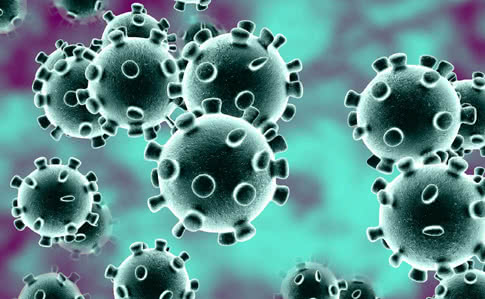SARS-CoV-2, the coronavirus that causes COVID-19, hit the world hard over the course of the last few months. The world has seen its fair share of pandemics over the centuries, from the Black Plague to the Spanish Flu.
More recently, there was the 2009 swine flu pandemic and the Ebola epidemic in 2014. However, the coronavirus has paused the world in a way that few living people have seen before. And as many people continue to shelter in place, some places are starting to reopen even without a coronavirus vaccine. Does that mean life can return to normal—and will the coronavirus go away without a vaccine?
Amesh Adalja, MD, an infectious-disease specialist and a senior scholar at the Johns Hopkins Center for Health Security, told Live Science that because the coronavirus has already “established itself in human populations,” it cannot be eradicated without a vaccine. As the World Health Organization (WHO) explains, the eradication of a disease is “difficult and rarely achieved.” And it never happens on its own, according to WHO: “There must be an available intervention to interrupt its transmission, available efficient diagnostic tools to detect cases that could lead to transmission, and humans must be the only reservoir.”
So, what does that mean for everyone living through this pandemic? Physician scientistSteven Quay, MD, PhD, says he expects that the “coronavirus won’t stop infecting humans for at least the next decade or so.” He draws comparison to the severe acute respiratory syndrome (SARS) pandemic of 2003. However, there are key differences in how the coronavirus behind COVID-19 can be transmitted, which makes it harder to contain than SARS was.

“SARS came with great rapidity and with a lethal rate much higher than SARS-CoV-2, caused about 8,000 cases, and then has apparently disappeared,” he says. “[But] with the high rate of both mild cases and asymptomatic patients in SARS-CoV-2, combined with virus shedding documented from the first day of infection and for as much as a month, I predict this coronavirus will infect every human on the planet in the next three years.”
As for the possibility of a vaccine, Quay says that while there are several coronavirus vaccine candidates in development, there has never been a successful vaccine developed against a coronavirus before.
Alex Berezow, PhD, microbiologist and vice president of scientific communications at the American Council on Science and Health, confirms that there are currently a few different coronavirus vaccine candidates being tested. However, he says it will be some time before a vaccine becomes available, if one ever does.
“[I expect] no vaccine until 2021 or later,” he says. “Vaccines must undergo extensive safety testing. The reason is because a bad vaccine can actually worsen the infection. We want to make sure the vaccine is safe before we inject it into millions or billions of people.”
But with no vaccine currently available and the possibility that everyone can get infected, how does life return to some type of normal? Quay believes the answer is herd immunity, which can be developed through antibodies from previous infection. Herd immunity doesn’t mean that the coronavirus disappears on its own, but instead, it would help us to become resistant to the virus. Without a vaccine, however, herd immunity is only achievable by many people getting sick.
And even though the virus could become less lethal over time as people develop some immunity and the spread slows down, Berezow says there are still some concerns. The most pressing is that scientists don’t currently know how long immunity to the virus lasts. “Research shows that humans don’t develop long-lasting immunity to coronaviruses, so it’s likely that we’ll be able to get infected again,” he says. “The upside is that partial immunity is better than no immunity.”

